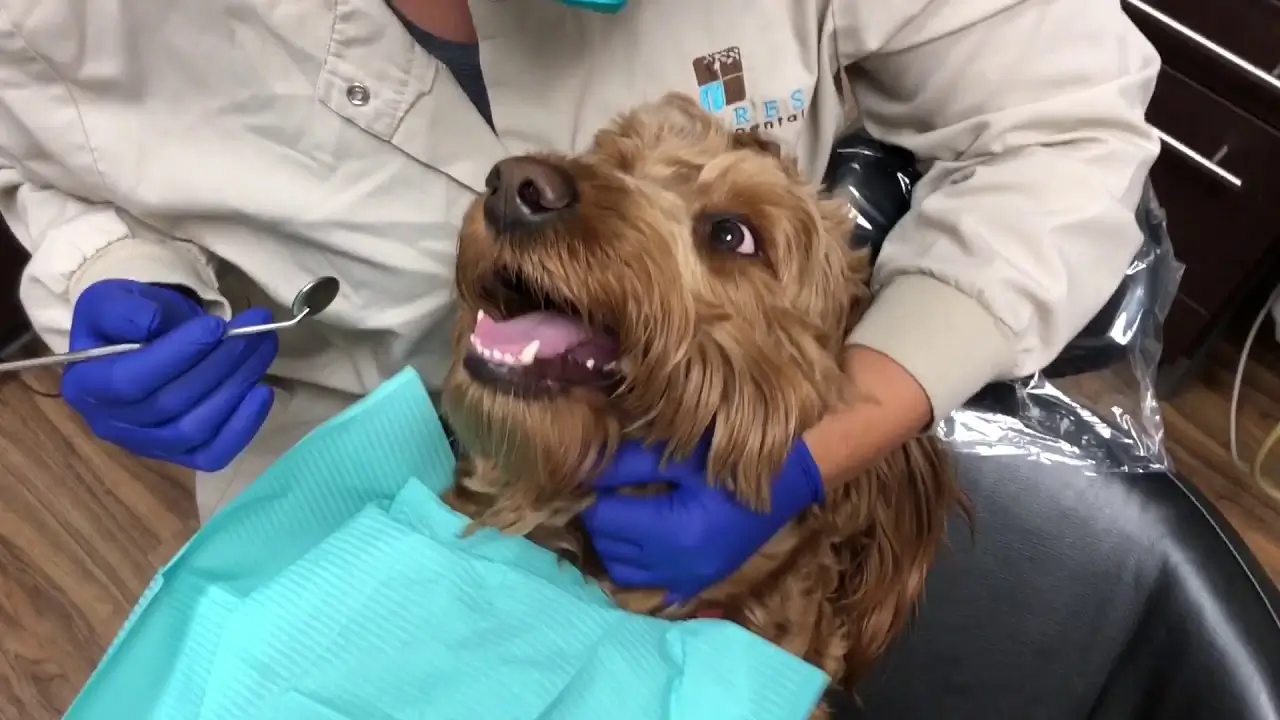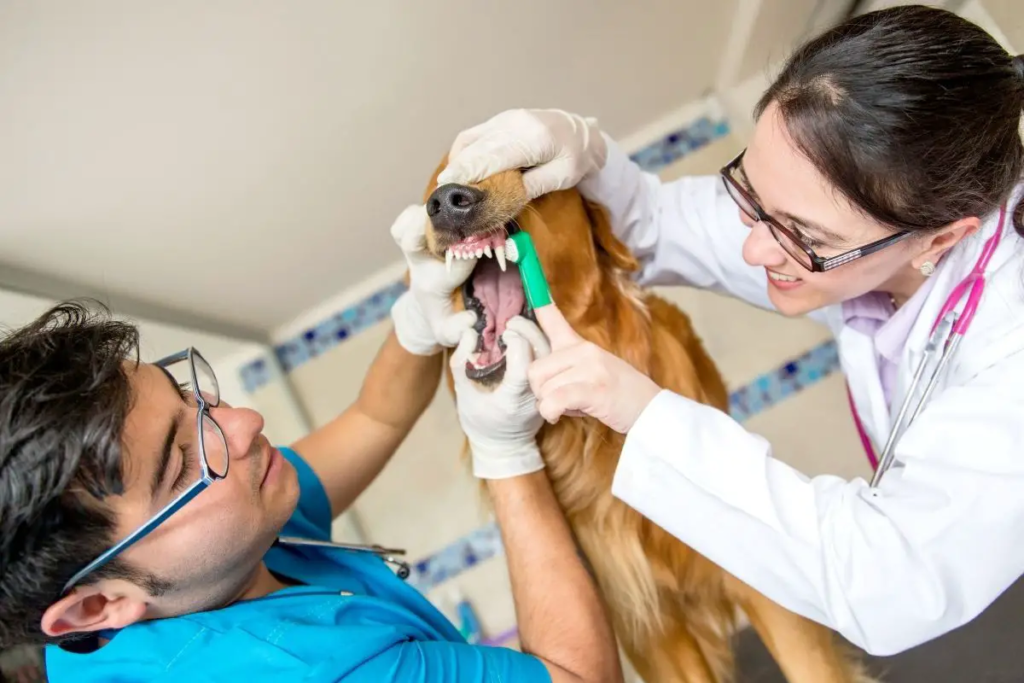Dog Breeds Prone to Dental Disease

As responsible dog owners, maintaining our pets’ oral health is crucial. Dental disease is a common issue among many dog breeds, often leading to more severe health problems if left untreated. This article delves into the top dog breeds prone to dental disease and offers detailed preventative measures to keep their teeth and gums healthy.
Breeds Prone to Dental Disease
1. Yorkshire Terrier

Dental Problems: Yorkshire Terriers are highly prone to dental disease due to their small mouths, which can lead to overcrowding of teeth. This makes it easy for plaque and tartar to build up, causing gum disease and tooth loss.
Why: The small size of their jaws means teeth are often misaligned, creating tight spaces where food particles and bacteria can accumulate.
How to Prevent: Brush their teeth daily using a soft-bristled toothbrush and dog-specific toothpaste. Regular veterinary dental check-ups are essential to monitor and address any developing issues.
Preventative Measures: In addition to regular brushing, providing dental chews and ensuring a diet that includes dry kibble can help reduce plaque buildup.
2. Dachshund

Dental Problems: Dachshunds often suffer from periodontal disease due to the shape of their snouts and the tight packing of their teeth.
Why: Their elongated snouts and closely packed teeth create ideal conditions for plaque accumulation, leading to inflammation and infection of the gums.
How to Prevent: Ensure regular brushing and provide dental treats that help clean their teeth. Annual professional dental cleanings by a veterinarian are also recommended.
Preventative Measures: Encourage chewing on dental toys and bones, which can help naturally clean teeth. Additionally, monitor their diet to avoid sugary treats.
3. Poodle

Dental Problems: Poodles, including Toy and Miniature varieties, are susceptible to dental disease due to the texture of their fur, which can trap food particles near their gums.
Why: The curly hair around their mouths can harbor bacteria, leading to plaque buildup and eventual periodontal disease.
How to Prevent: Regular grooming around the mouth area, combined with daily tooth brushing, can significantly reduce the risk of dental problems.
Preventative Measures: Use dental wipes and oral rinses designed for dogs, and schedule routine dental check-ups with your vet.
4. Chihuahua

Dental Problems: Chihuahuas are known for their small size and often crowded teeth, making them prone to dental issues such as gingivitis and periodontal disease.
Why: Overcrowded teeth create spaces where plaque can easily form, leading to inflammation and infection if not properly managed.
How to Prevent: Brush their teeth frequently and provide dental chews to help keep their teeth clean. Regular veterinary examinations are crucial for early detection and treatment of dental issues.
Preventative Measures: Feed them a balanced diet that includes dental-friendly kibble, and avoid giving them human food that can contribute to plaque buildup.
5. Cavalier King Charles Spaniel

Dental Problems: These dogs are genetically predisposed to dental disease, with issues such as tartar buildup and gingivitis being common.
Why: Their genetic makeup often leads to crowded teeth, which makes it easier for food particles and bacteria to collect and cause problems.
How to Prevent: Daily brushing and professional cleanings are necessary to manage their dental health. Use dental sprays and rinses to help reduce bacteria in the mouth.
Preventative Measures: Provide dental toys and chews, and ensure regular dental check-ups to catch any issues early.
6. Maltese

Dental Problems: Maltese dogs frequently suffer from dental issues due to their small mouths and delicate teeth, leading to significant plaque buildup and gum disease.
Why: The structure of their mouths means food particles can easily get trapped, promoting bacterial growth and plaque formation.
How to Prevent: Brush their teeth daily, use dental wipes, and provide dental treats to help maintain oral hygiene.
Preventative Measures: Schedule regular professional cleanings and ensure they have access to dental chews and toys that promote chewing.
7. Shetland Sheepdog

Dental Problems: Shetland Sheepdogs are at risk for dental disease due to their dense coats, which can trap food and bacteria near their mouths.
Why: Their thick fur can easily capture food particles, creating a breeding ground for bacteria that lead to plaque and tartar buildup.
How to Prevent: Regular brushing of both their teeth and their coats, particularly around the mouth area, can help minimize the risk of dental disease.
Preventative Measures: Use dental chews and toys to encourage natural teeth cleaning, and maintain a regular schedule of veterinary dental check-ups.
8. Pug

Dental Problems: Pugs are particularly prone to dental issues because of their unique facial structure and compressed jaws, which can lead to overcrowded teeth and significant plaque buildup.
Why: The compressed structure of their jaws makes it difficult to thoroughly clean their teeth, increasing the risk of dental disease.
How to Prevent: Brush their teeth regularly, provide dental chews, and ensure professional dental cleanings are done at least once a year.
Preventative Measures: Maintain a balanced diet that supports dental health and avoid feeding them sugary treats that can exacerbate dental problems.
Preventative Measures for Dental Health
Regular Brushing
Brushing your dog’s teeth regularly is the most effective way to prevent dental disease. Use a dog-specific toothbrush and toothpaste to remove plaque and food particles. Aim to brush their teeth at least three times a week.
Dental Chews and Toys
Providing your dog with dental chews and toys can help reduce plaque and tartar buildup. These products are designed to clean teeth and massage gums as your dog chews, promoting better oral health.
Professional Cleanings
Regular professional dental cleanings are essential, especially for breeds prone to dental disease. Veterinarians can thoroughly clean your dog’s teeth, removing plaque and tartar that regular brushing might miss.
Balanced Diet
A balanced diet plays a crucial role in maintaining your dog’s oral health. Feeding them high-quality, crunchy kibble can help scrape away plaque. Avoid giving them sugary treats that can contribute to dental problems.
Regular Veterinary Check-Ups
Regular veterinary check-ups are vital to detect and address dental issues early. Your vet can provide professional advice and treatments tailored to your dog’s specific needs.
Necessity of Pet Insurance for Dental Health

Investing in pet insurance is highly recommended, especially for dog breeds prone to dental disease. Dental surgeries and interventions can be costly, and having pet insurance can help manage these expenses effectively.
High Cost of Dental Surgeries
Dental procedures for dogs, such as tooth extractions, root canals, and periodontal treatments, can be expensive. The cost of these surgeries can range from several hundred to several thousand dollars, depending on the severity of the dental issue and the type of procedure required.
Why Pet Insurance is Beneficial
Pet insurance can significantly reduce the financial burden associated with dental treatments. Many pet insurance plans cover dental surgeries and treatments, allowing pet owners to provide the best possible care without worrying about the high costs.
How to Choose the Right Insurance
When selecting pet insurance, look for plans that offer comprehensive coverage for dental health, including routine cleanings, extractions, and other necessary dental procedures. Ensure that the policy covers breed-specific dental issues and provides sufficient annual limits to cover potential costs.
Preventative Care Coverage
In addition to covering dental surgeries, some pet insurance plans also include coverage for preventative care, such as regular dental cleanings and check-ups. This can help manage your dog’s oral health proactively, reducing the risk of severe dental problems.
Conclusion
Maintaining your dog’s oral health is essential to their overall well-being. By understanding which breeds are more susceptible to dental disease and implementing effective preventative measures, you can help ensure your furry friend remains healthy and happy. Regular brushing, dental chews, professional cleanings, a balanced diet, and consistent veterinary check-ups are key to preventing dental disease in dogs.
FAQs
1. Why are certain dog breeds more prone to dental disease?
Certain dog breeds are more prone to dental disease due to factors such as their genetic makeup, the structure of their mouths, and the alignment of their teeth. Small breeds often have crowded teeth, which makes it easier for plaque and tartar to accumulate.
2. What are common signs of dental disease in dogs?
Common signs of dental disease in dogs include bad breath, red or swollen gums, yellow or brown tartar buildup on teeth, difficulty eating, drooling, and loose or missing teeth. If you notice any of these signs, it’s important to consult your veterinarian.
3. How often should I brush my dog’s teeth?
Ideally, you should brush your dog’s teeth daily. However, brushing at least three times a week can help reduce plaque buildup and maintain their oral health. Use a toothbrush and toothpaste specifically designed for dogs.
4. Are dental chews effective in preventing dental
disease?
Yes, dental chews can be effective in preventing dental disease. They help reduce plaque and tartar buildup by encouraging chewing, which naturally cleans the teeth and massages the gums. However, they should be used in conjunction with regular brushing and professional cleanings.
5. What should I look for in a pet insurance plan for dental coverage?
When choosing a pet insurance plan for dental coverage, look for comprehensive plans that cover routine cleanings, extractions, and other dental procedures. Ensure the policy covers breed-specific dental issues and provides sufficient annual limits for potential costs.
6. Can a balanced diet help prevent dental disease in dogs?
Yes, a balanced diet can help prevent dental disease in dogs. Feeding your dog high-quality, crunchy kibble can help scrape away plaque. Avoid giving them sugary treats that can contribute to dental problems. Consult your veterinarian for dietary recommendations.
7. How often should my dog have professional dental cleanings?
Professional dental cleanings should be done at least once a year for most dogs. However, breeds prone to dental disease may require more frequent cleanings. Your veterinarian can recommend an appropriate schedule based on your dog’s specific needs.
8. What are the risks of untreated dental disease in dogs?
Untreated dental disease in dogs can lead to severe health problems, including tooth loss, infections, and damage to the jawbone. Bacteria from dental infections can also enter the bloodstream, potentially affecting the heart, liver, and kidneys.
9. Are there any natural remedies for improving my dog’s dental health?
Natural remedies such as providing raw bones and certain fruits and vegetables (like carrots and apples) can help clean your dog’s teeth. However, these should be used in moderation and should not replace regular brushing and professional care.
10. How can I help my dog if they already have dental disease?
If your dog already has dental disease, consult your veterinarian for an appropriate treatment plan. This may include professional cleanings, extractions, and medications. Maintaining a rigorous oral hygiene routine at home is crucial to prevent further issues.




One Comment